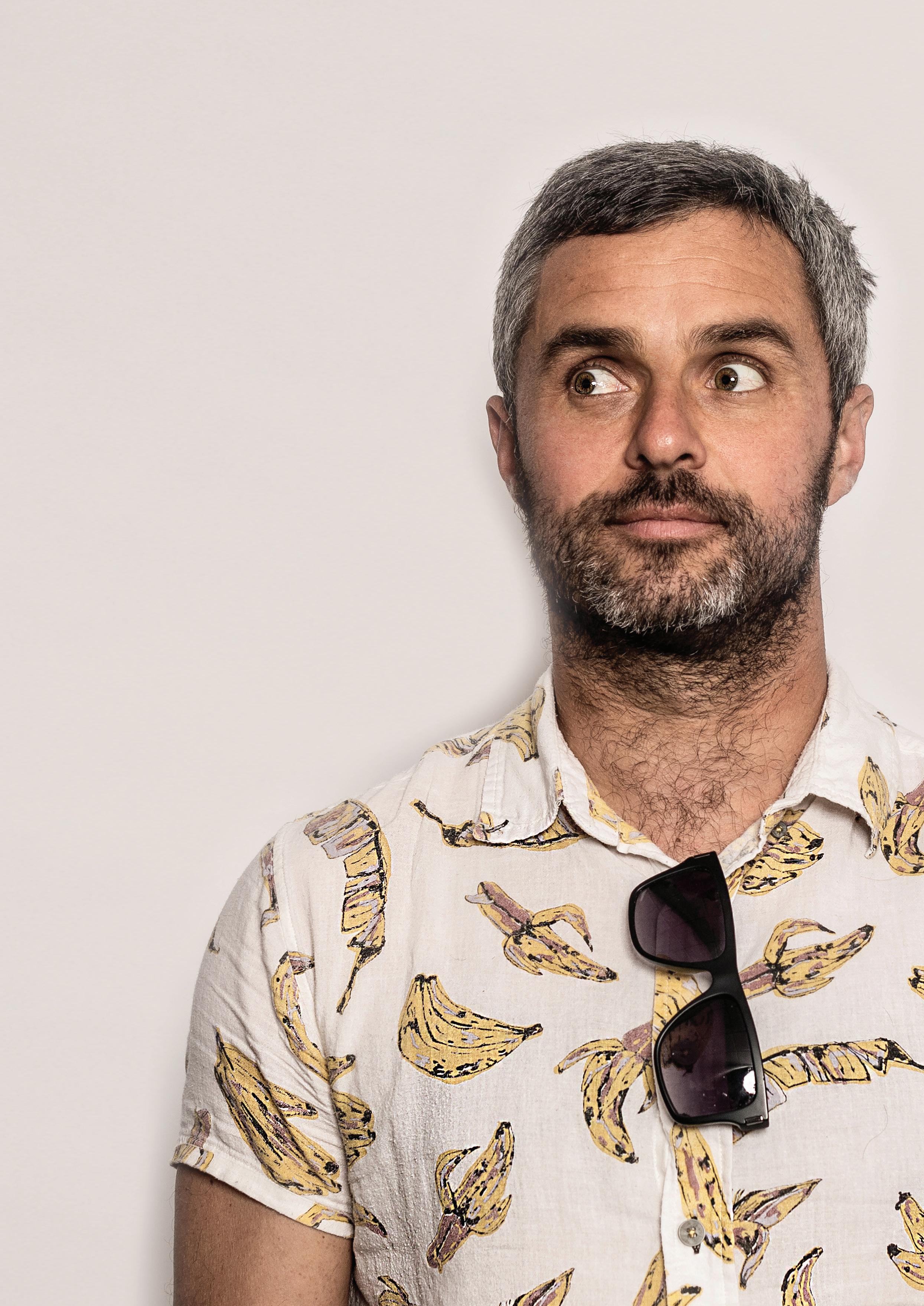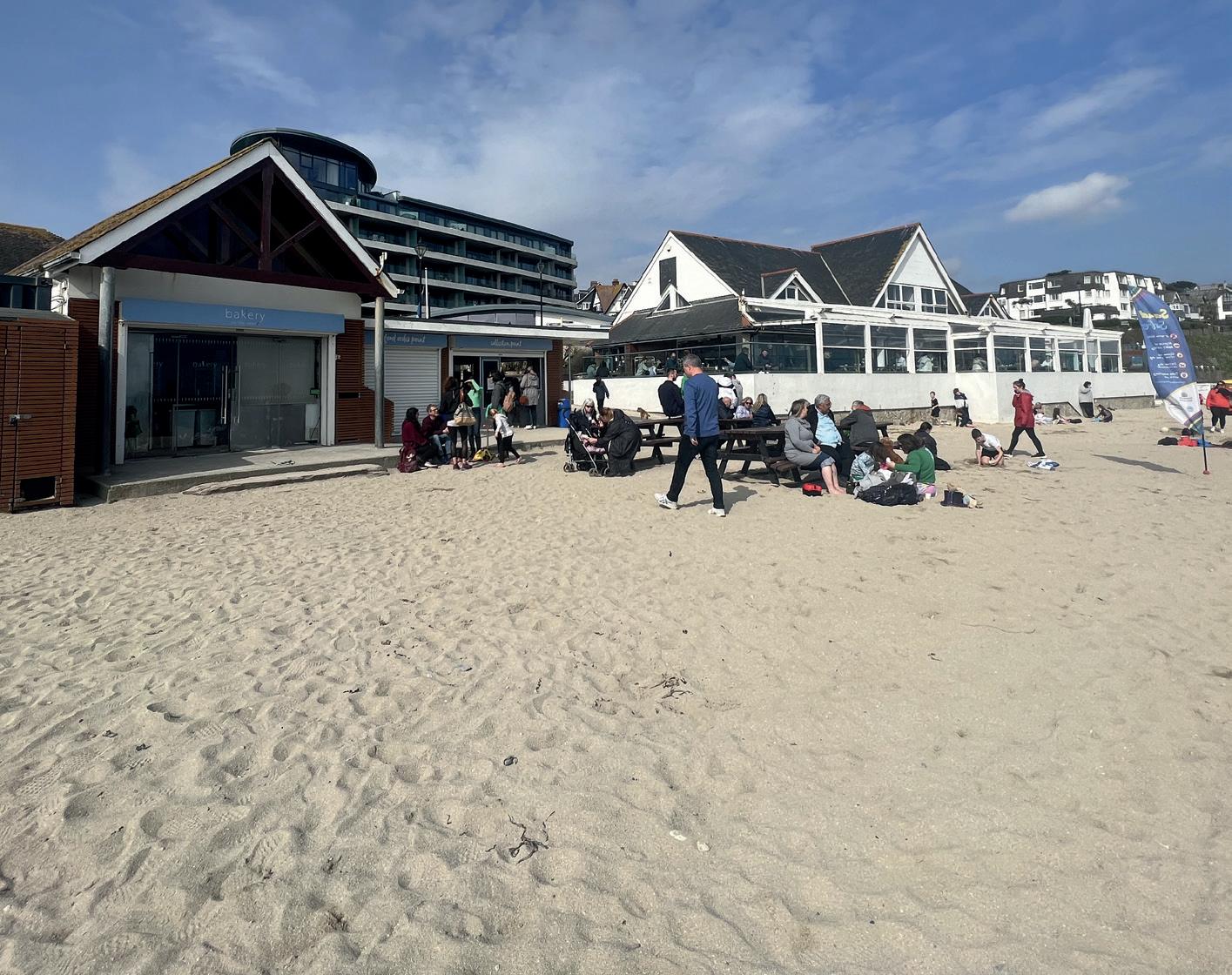
2 minute read
Nurturing new creatives
Participants of the graduate programmes have also had the opportunity to showcase their work in professional exhibitions organised with the support of Cultivator. Most recently, artists on the programme’s third cohort became the collective known as ‘Dreysa’ and completed a large-scale one-month exhibition at the historical Penwith Gallery in St Ives entitled ‘The Unsteady Now’, resulting in sales to collectors and plans for future collaboration.
According to the Higher Education Statistics Association, at least 15% of graduates in the UK become selfemployed directly after graduation, and this figure is even higher as the time from graduation increases.
Since 2017, Cultivator has led 68 entrepreneurs in three cohorts through a Graduate Start Up programme offering in-depth business coaching, mentoring, networking, and skills development opportunities. The programme is designed to fast-track the success of high calibre entrepreneurs from creative degree disciplines at BA and MA level. It includes specialist business-focused advice and support from practicing industry professionals in an incubated group cluster that learns and develops together.
Participants also benefit from subsidised workspace at creative hubs such as Krowji and Porthmeor Studios. Emily Juniper, who attended the programme’s first cohort in 2018 after graduating from MA Authorial Practice at Falmouth University, now runs her own publishing house and hit the VAT threshold over 18 months ago from a standing start in 2018.
Emily says: “I feel connected to an extensive community through Cultivator. I found the coaching has helped me to be brave in my decision-making. I now value my time and my skills when quoting for clients and understand the importance of structure and focus.”
The programme has worked with a broad spectrum of graduates from the screen sector, visual art, design, designer makers, theatre, and dance. Graduates such as filmmaker Jonny Dry, ceramicist Emily Tapp, and bespoke 3D designers Murdoch Design have all become key players in the creative scene in the UK.
Marta Feyles, one of the artists involved in the exhibition and a tattooist based in Penzance, has also seen tremendous success since starting the programme eight months ago, with turnover expected to quadruple by the end of next month. “The help I have received has created so many opportunities for growth that I would have never considered,” she says.
Jonathan Michael Ray, a visual artist is another success story; since participating in the programme, he has gone on to exhibit with world renowned St Ives artist Wilhelmina Barns-Graham at Tate, St Ives and he is now represented by Somerset based gallery, Bolee and Workman.
“The business advice that was tailor-made for my specific needs and goals has been brilliant,” says Johnathan. “The entire experience has had an unforgettable impact on my studio practice as well as my ambitions for the future.”
Overall, the cohort learning model provides graduates with a supportive community of like-minded individuals, specialized training and mentorship from industry professionals, and access to valuable resources and opportunities. Through this model, the Cultivator programme has helped numerous creative graduates achieve their entrepreneurial goals and become successful leaders in their respective industries.
Cultivator is a project of Creative Kernow, the creative and cultural sector support organisation for Cornwall and IoS, working three areas: developing the creative economy, providing creative hubs and developing creative communities.
In these challenging economic times, marketing is often one of the first budgets to be cut. But now, more than ever, it is vital to promote your business in the right way.
We ask four local marketing experts for their tips and advice.










